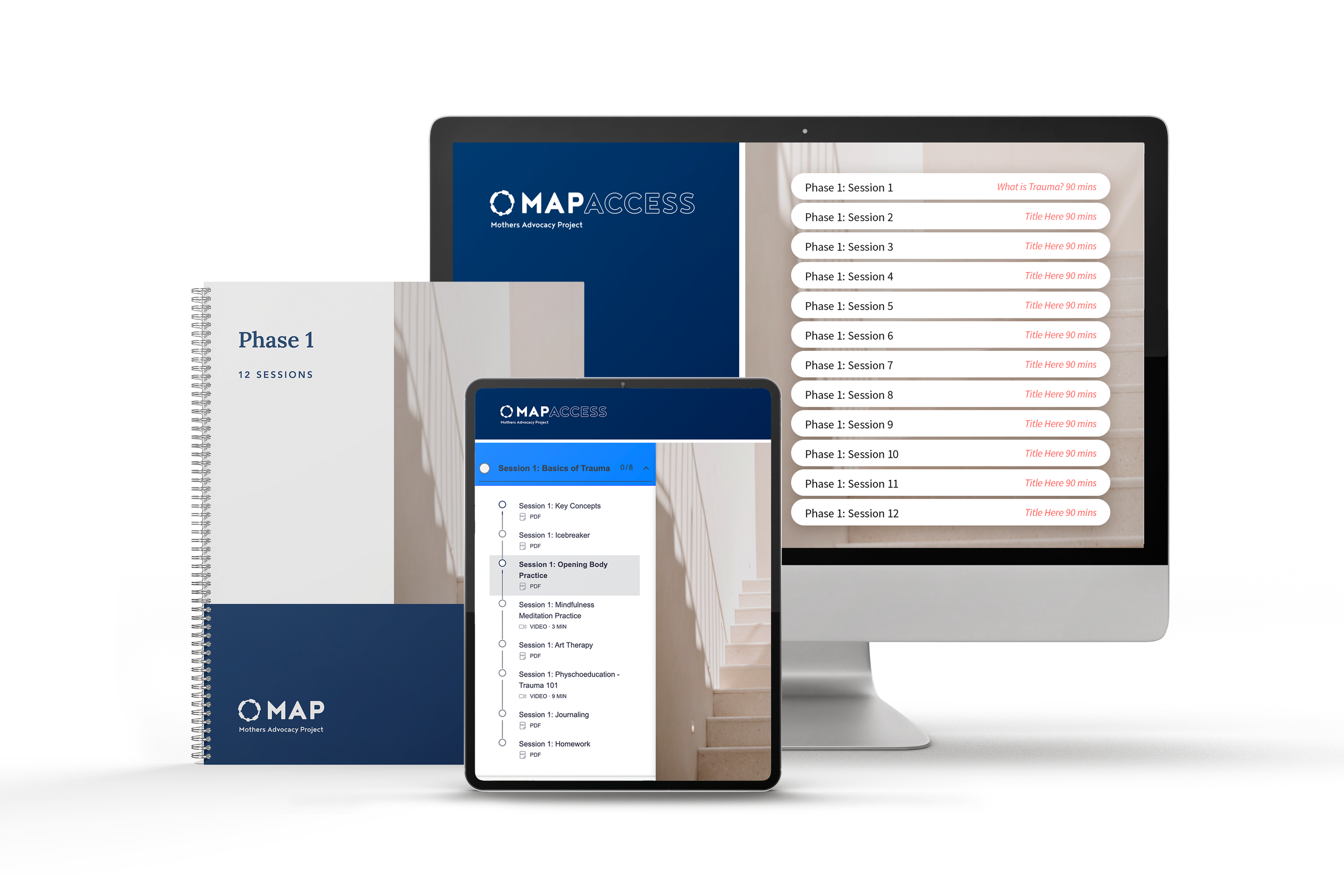Introducing MAP:Access
Extending MAP beyond Metro Atlanta, GA.
The curriculum for our trauma intervention program designed to end the intergenerational cycle of maltreatment and trauma in women-led families is now available to qualified therapists.
Program Overview
Now available: Phase 1 of Trauma Intervention.
In this 12-week program created to serve single mothers and single woman-led families, therapists have access to tools, worksheets, videos, and education to help their clients identify and escape the bonds of trauma, lead healthy families, and create generational stability.
Coming Soon: Phase 2 & Phase 3
Increase a sense of safety and internal stability
Set the foundation for growth and healing
Learn and practice trauma-informed mind/body connection techniques
Introduce the power of effective communication, healthy boundaries, positive coping skills, healthy habits, self care, and more…
Learn more about the program by those who created it.
For therapists, by therapists.
MAP:Access is
Dr. Denisa Millette, a Clinical Director at Mothers Advocacy Project, is a Licensed Psychotherapist, a University Professor of Psychology, and a Certified Clinical Supervisor. As a trauma practitioner and a researcher with over 20 years of clinical experience, Dr. Millette currently serves as a committee chair of the International Association for Resilience and Trauma Counseling of the American Counseling Association. Dr. Millette’s research efforts are focused on trauma-informed care, vicarious trauma, and emotional intelligence. Dr. Millette is a member of the American Psychological Association, the American Counseling Association, and Psi Chi, The International Honor Society in Psychology.
Dr. Millette developed our Trauma Assimilation and Social Stability integrative model (TASS) specifically for use by Mothers Advocacy Project and partners working with similar populations. The TASS model is an evidence-based, bio-psycho-social intervention combining trauma-focused psychotherapy and social advocacy. The main components of the three-phase program include group and individual psychotherapy, family advocacy sessions, social and instrumental support, psychoeducation, and practical life skills training.
The trauma-focused individual and group psychotherapy in all three phases of the program draws from the most recent research findings in the field of clinical trauma, combining theoretical approaches of Cognitive Behavioral Therapy, Dialectic Behavioral Therapy, Cognitive Processing Therapy, Trauma Exposure Therapy, Art Therapy, and Mind-Body Practices, such as trauma-focused yoga and martial arts. The focus of the social advocacy component is on establishing client social and economic stability through stable housing and employment as well as mastering fundamental life skills, such as time management, budgeting, and self-care.


